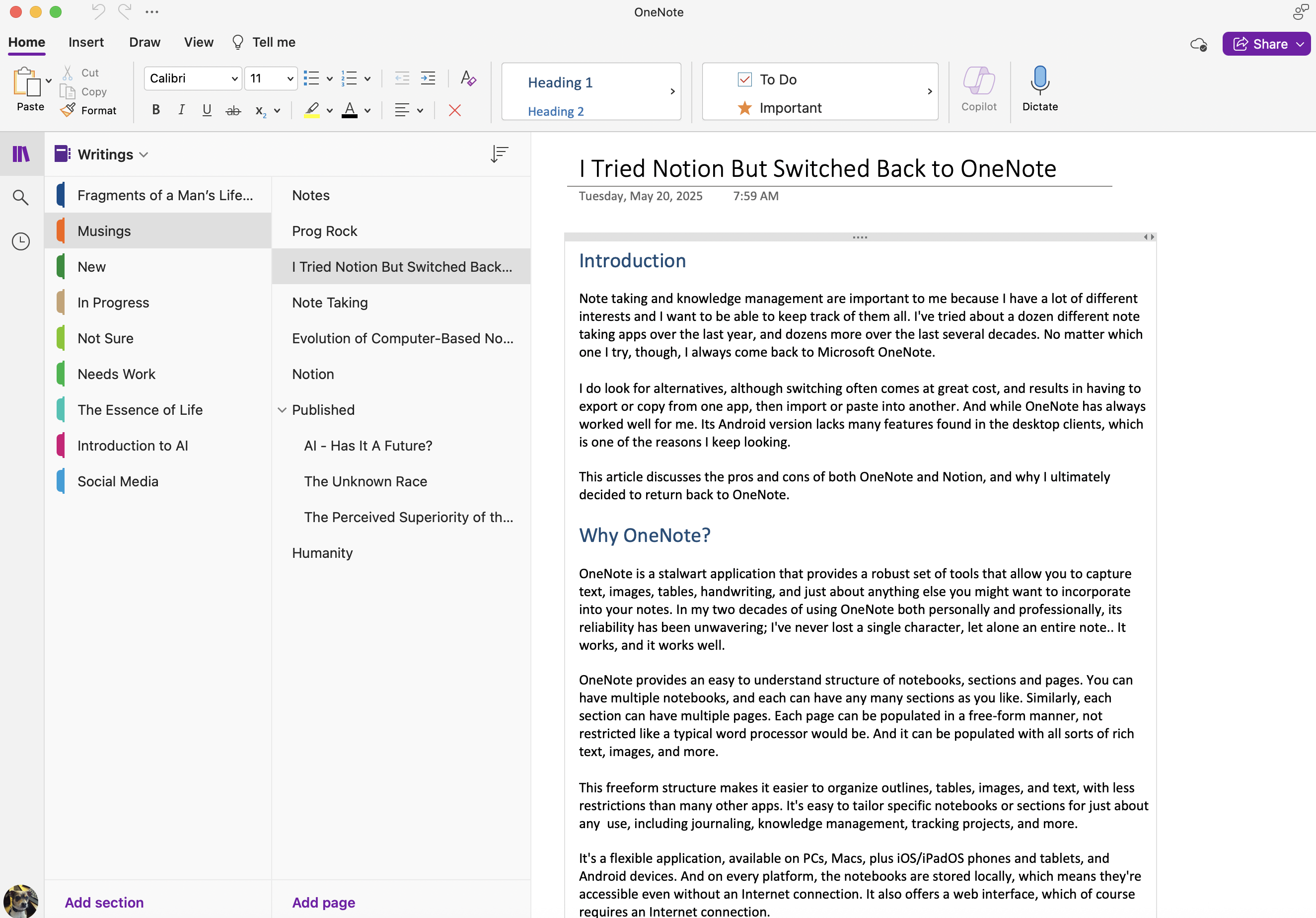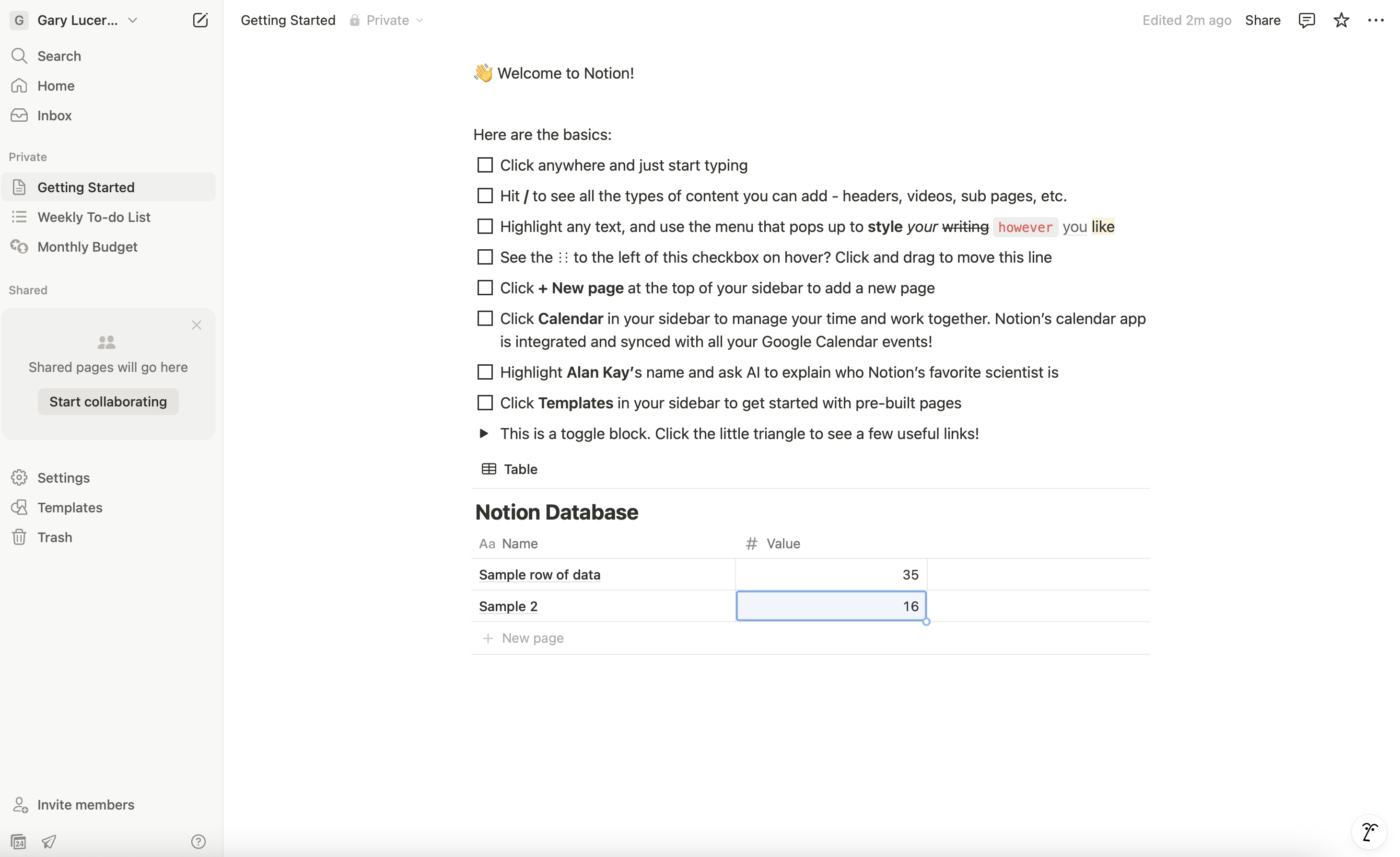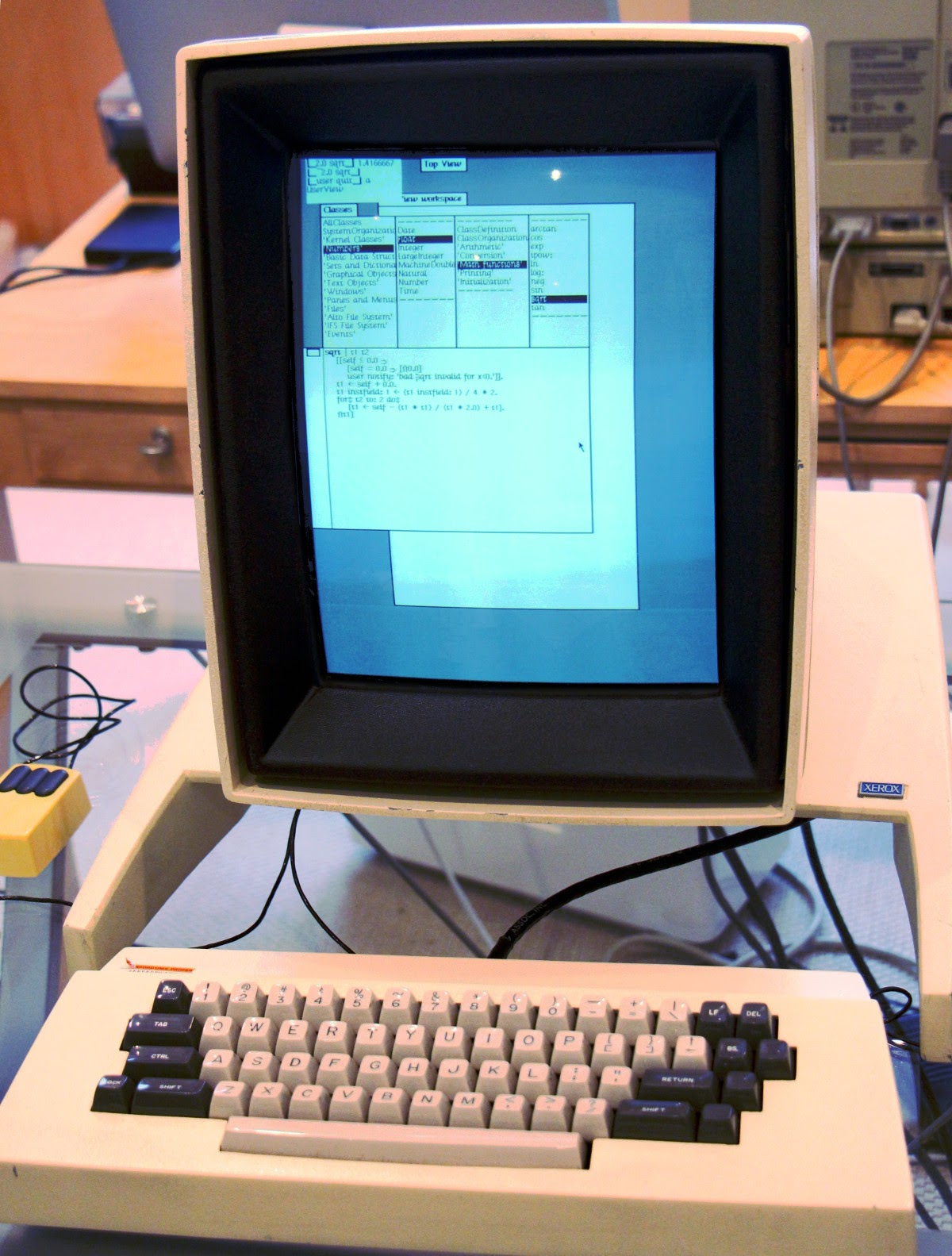Introduction
Note taking and knowledge management are important to me because I have a lot of different interests and I want to be able to keep track of them all. I've tried about a dozen different note taking apps over the last year, and dozens more over the last several decades. No matter which one I try, though, I always come back to Microsoft OneNote.
I do look for alternatives, although switching often comes at great cost, and results in having to export or copy from one app, then import or paste into another. And while OneNote has always worked well for me, its Android version lacks many features found in the desktop clients, which is one of the reasons I keep looking.
Many note taking apps offer mobile and desktop clients with identical functionality, but Microsoft has chosen to limit the Android and iOS versions of OneNote considerably. This is a notable limitation, but one I'm willing to live with.
This article discusses the pros and cons of both OneNote and Notion, and why I ultimately decided to return back to OneNote.
Why OneNote?
OneNote is a stalwart application that provides a robust set of tools that allow you to capture text, images, tables, handwriting, and just about anything else you might want to incorporate into your notes. In my two decades of using OneNote both personally and professionally, its reliability has been unwavering; I've never lost a single character, let alone an entire note.
OneNote provides an easy to understand structure of notebooks, sections and pages. You can have multiple notebooks, and each can have as many sections as you like. Similarly, each section can have multiple pages. Each page can be populated in a free-form manner, not restricted like a typical word processor would be. And it can be populated with all sorts of rich text, images, and more.
OneNote's hierarchical structure with notebooks, sections, and pages, demonstrating its organized approach to note-taking.
This freeform structure makes it easier to organize outlines, tables, images, and text, with less restrictions than many other apps. It's easy to tailor specific notebooks or sections for just about any use, including journaling, knowledge management, tracking projects, and more.
It's a flexible application, available on PCs, Macs, plus iOS/iPadOS phones and tablets, and Android devices. And on every platform, the notebooks are stored locally, which means they're accessible even without an Internet connection. It also offers a web interface, which of course requires an Internet connection.
How About Notion
The most recent note taking app I invested my time in is Notion. It is the darling of the tech world, mostly because it's flexible and works great for collaboration, which is also a selling point of OneNote. But they are entirely different beasts, and Notion lured me in because it has a streamlined UI that is attractive and fun to use.
This doesn't mean OneNote isn't fun to use, or that there's a problem with its user interface. But its design hasn't changed that much in the 20+ years I've been using it, and Notion is nice because it doesn't look like a traditional office application. It looks and acts more like a website.
Notion's flexible page layout and database capabilities, showcasing its web-like interface and customizable blocks.
Notion is one of a new breed of knowledge management apps that allows you to store your data in a variety of ways, including in databases. I won't go into what databases are here, except to say I wasn't impressed with them. But what I did like about Notion is its aesthetic and its incorporation of AI.
Notion AI allows you to easily do things like generate text using the data stored in Notion, as well as from the Internet. Or it can revise text for you and make suggestions. The full power of popular LLMs is available right from within Notion.
OneNote at the moment can't match this. Copilot Pro in OneNote is more focused on rewrites, suggestions, and creating to-do lists. Microsoft has yet to unlock the full potential of their AI platform, so it feels hobbled and useless.
There are some things I don't like about notion, including the fact that it's online-only. This means all of the data is stored in Notion's cloud. This is a huge drawback for anyone with spotty Internet connections or that travel often. It offers the ability to export the data but from my experience, it always creates corrupted backups, which are useless. I'm sure this will be fixed at some point, but I worry about losing all of this data if there's an outage, if the service if hacked, or the company goes out of business.
Notion AI is expensive – Notion just raised the price of their AI technology. It now costs $20 per month as part of their Business plan, billed annually, which is the same price as Copilot Pro, but neither of them are worth that sort of investment, at least for what I'd use them for. While Notion's AI offers powerful summarization and content generation, at $20 per month, it might be prohibitive for individual users. Consider if your use cases truly warrant this additional expense, or if manual methods suffice.
Summary
Both Notion and OneNote are flexible and full futured, with more tools available then I'd ever need to use. Some aspects of OneNote that I use at work, such as the collaborative features, I haven't tried in Notion, so I have no experience with them. But of the features I did use, while I found Notion attractive and stylish, it's less flexible in many ways to OneNote. OneNote's very nature, with it's structure of notebooks, sections, and freeform pages, makes it easy to customize for just about any need. That sort of customization takes a lot more work in Notion.
If you don't need AI, you can use Notion for free, which is a bargain, but OneNote is also free. It's the online-only aspect of Notion that forced me to switch back. At least with OneNote, all of my notebooks are stored locally, then synced to OneNote. If I lose my Internet connection, I can still read and edit my notes. With Notion, if there's no Internet, there's no Notion.
For me, the online-only aspect of Notion made me feel vulnerable, and the high cost of AI worried me. I don't want to grow too found of a feature that is just too expensive to use. This combined with the unreliable backups worries me.
Ultimately, I returned to OneNote because it's proven technology that has never failed.
Looking for more information about technology and music? Visit Gary Lucero Writer and join my mailing list. I send out a bi-weekly newsletter that discusses technologies such as AI, rock and progressive rock music, and I sometimes delve into philosophical topics.
You can find me on Instagram, Facebook, and YouTube, and I host a podcast on a variety of sites, including:
If you want to reach me using e-mail, send me a message at contact@garylucerowriter.com




